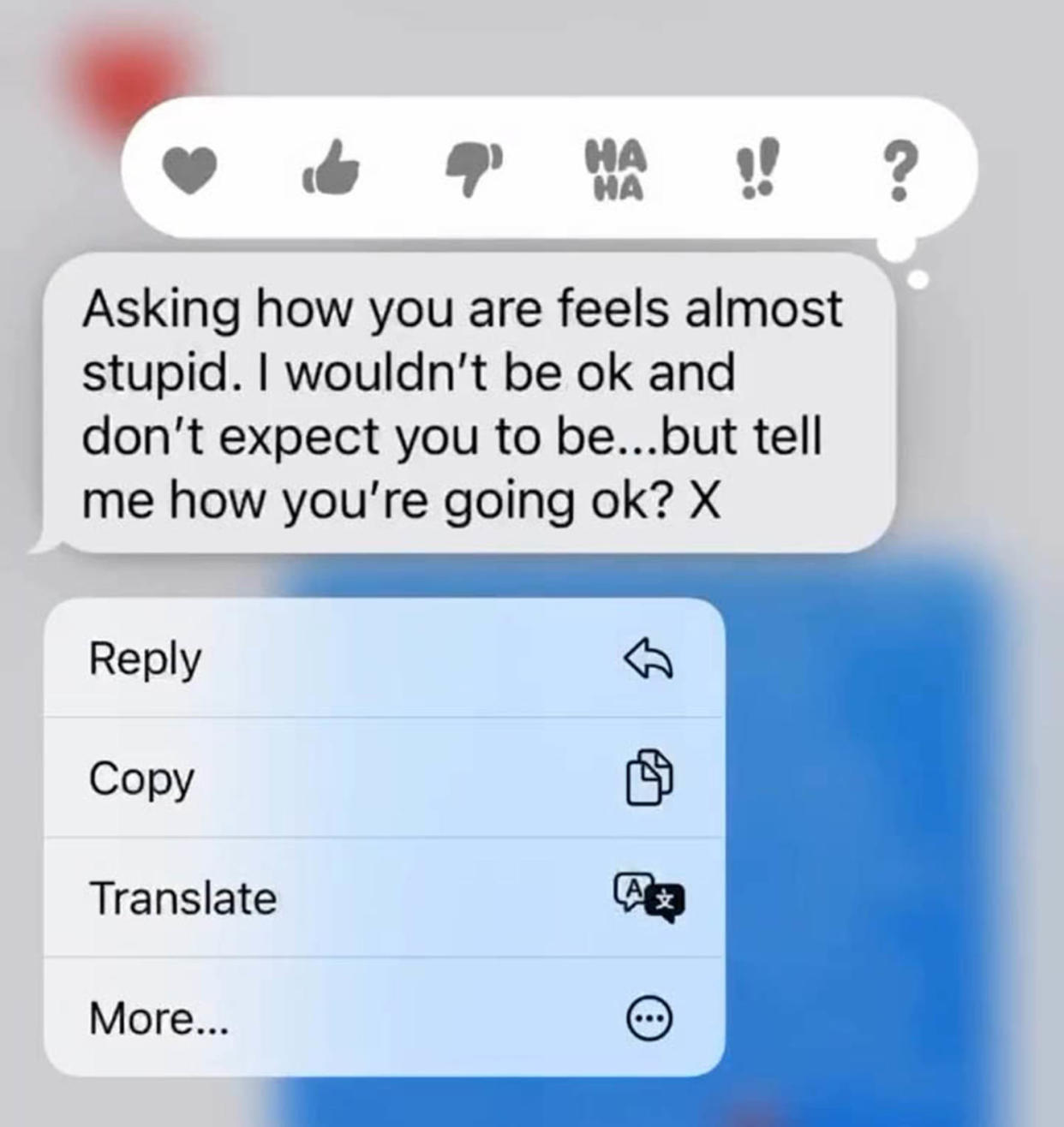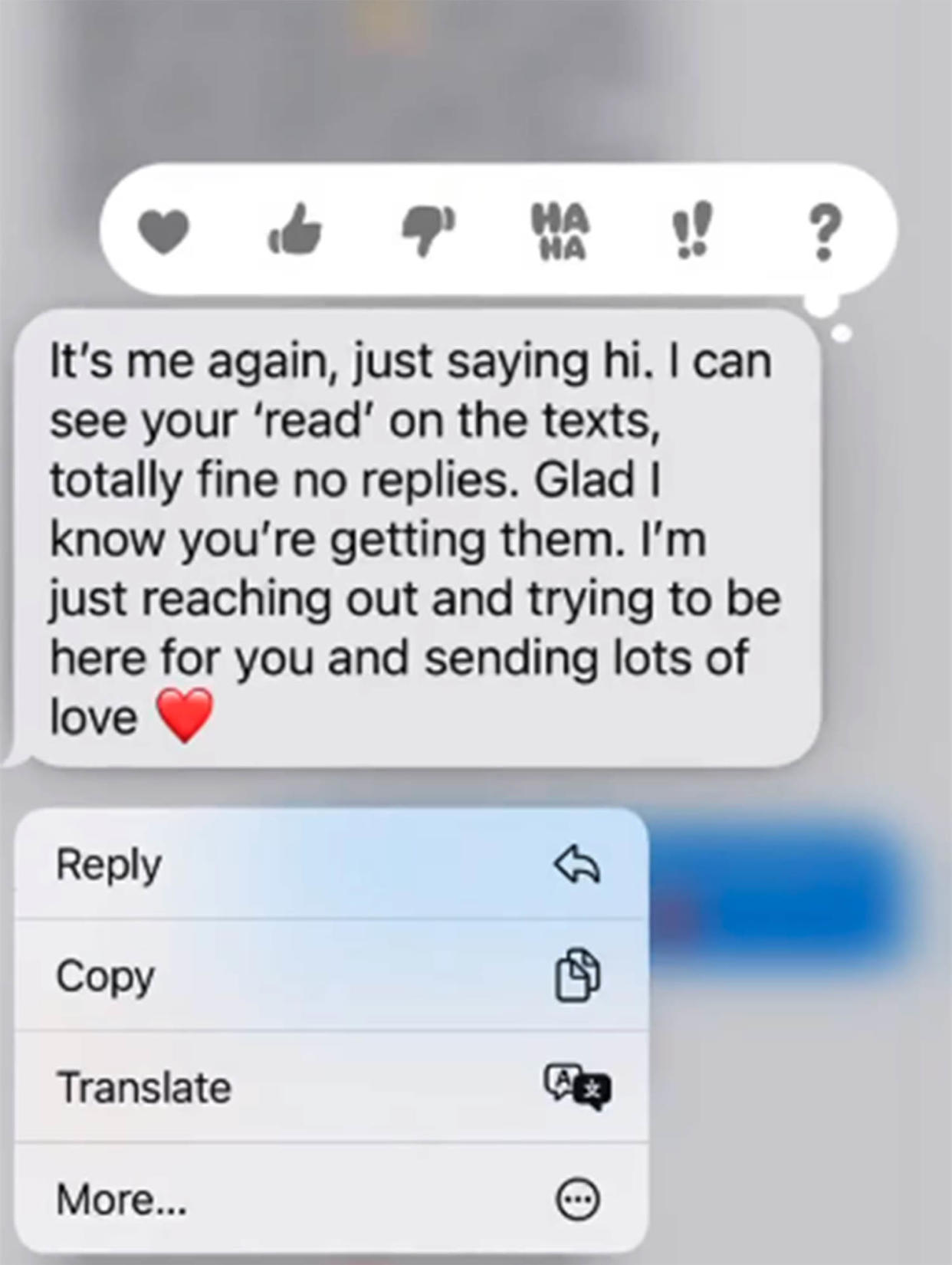What to say? One woman shares the texts that actually helped after her mom died
It’s hard to know what to say to a friend who is grieving. That’s why Imogen Carn, co-creator of the “Good Mourning” podcast, is sharing the messages that brought her comfort after her mom died.
“When someone is coping with loss, the small, regular texts and check-ins can REALLY help,” Carn, 36, captioned her now-viral Instagram video, in part.
Here are some of the meaningful texts that Carn received:
“One day at a time. xx.”
“Did you sleep? What needs to happen today and how can I help?”
“How are you doing today? X.”
“Call me whenever you want some company. We can watch trashy movies on the couch and eat chocolate. Love you so much.”
“I am so sorry.”
“It’s me again, just saying hi. I can see your ‘read’ on the texts, totally fine no replies. Glad I know you’re getting them. I’m just reaching out and trying to be here for you and sending lots of love.”
“Asking how you are feels almost stupid. I wouldn't be OK and don't expect you to be ... but tell me how you're doing OK? X"
Carn, who lives in Sydney, Australia, says we tend to shy away from conversations about grief because it reminds us of our own mortality.
“People don’t want to confront the fact that death will happen to us and those we love, so it’s easier to brush it aside by not talking about it,” Carn tells TODAY.com.

Push past the awkwardness and those feelings of discomfort, Carn urges. Showing that you acknowledge a person's loss can mean a lot, according to Carn, co-author of "Good Mourning: Honest Conversations About Grief and Loss."
“As a supporter, be proactive. Offer specific help and follow through. Don’t just ask what you can do. Think about what tasks you can take off their plate — getting help with practical tasks can be a godsend when you’re grieving,” Carn says.
And then keep showing up, because as Carn notes, “grief is an ongoing experience with no set end.”

Carn also offered tips for in-person interactions. Instead of asking, “How are you?” Carn says to begin with, “How are you today?”
“This small language change can signal that you’re willing to listen and that it’s OK for them to open up and share their feelings,” she explains.
Most importantly, be present and listen without judgment.
“It can be helpful to ask, ‘Do you want solutions or comfort right now?” Carn says.
Carn’s Instagram reel has been seen nearly 10 million times and has racked up thousands of comments.
“Every day for months after my husband died, one of my friends would send ‘I love you.’ After a while, I told her she didn’t need to send them all the time, and her response was, ‘You lost the person who told you that you were loved every single day. I’m gonna make sure you are still hearing it every day,’” one person wrote.
Added another, "‘You don’t have to reply’ was the best thing people put on messages to me. Took the pressure off of feeling like a bad person when I was drowning in grief but I knew they were thinking of me.”
This article was originally published on TODAY.com
